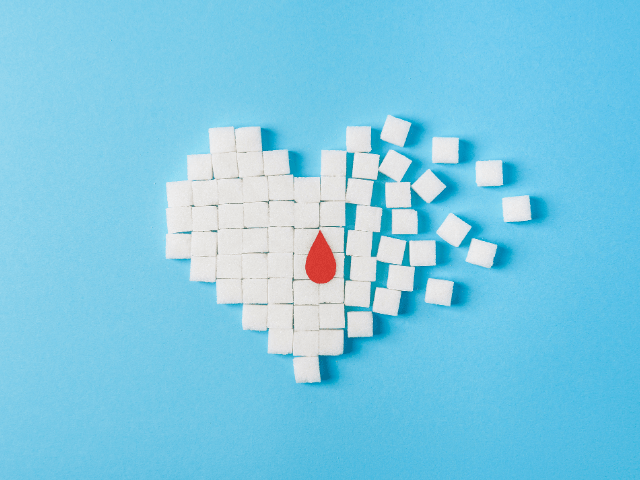Table of Contents
The main purpose of all treatment and prevention measures for both pre-diabetes; and diabetes is to regulate the blood glucose levels in the individual’s body. All in all; modern medical technologies have been successful enough to come up with effective treatment methods for diabetic symptoms and complications.
Medical procedures still vary from one person to the next, depending on the disease’s level of severity. However, all physicians agree that medically inclined therapeutic methods are not enough to be guaranteed a diabetic-free life. In conjunction to medical treatment and prevention procedures; diabetes requires strict and proper management of diet and nutrition, expertly-devised exercise regimen, healthy lifestyle; and regular self-monitoring of blood glucose.
Clinical Therapeutic Procedures
Medications
Meds for diabetics can be administered either orally or by injection. Insulin and hypoglycemic drugs are the primary drugs utilized by diabetic patients.
Dialysis and Surgery
Some individuals in severe diabetic stages suffer from kidney failure, which will require regular dialysis. Some others opt for the more expensive and complex surgical procedures, specifically kidney and/or pancreas transplants. Physicians recommend implantation of pancreatic cells as an alternative in order to eliminate transplant rejection.
Proper Diet and Nutrition
The Diabetes Control and Complications Trials stated that a well-devised; anti-diabetes diet plan can significantly reduce the levels of glycosylated hemoglobin in the blood by at least 1%; which is equivalent to more than 25% decrease in degree of severity of diabetic complications, including diabetic nephropathy, retinopathy; and neuropathy.
Exercise
A physically taxing activity requires a sufficient amount of energy, and the body works to answer this demand by burning calories and converting food; specifically the glucose units in the blood, into energy. With the help of your doctor, devise an exercise routine and schedule that’s applicable for you. Diabetics are required to exercise with the same amount of time and intensity every day to avoid further aggravation of their condition. Please remember that hypoglycemia; or drastic drop in blood glucose levels can occur during and/or after moderate exercises, hence insulin intake; and/or ingestion of a carb snack is suggested. Remember to drink lots of fluids during and after exercise.
Healthy Lifestyle
Medical procedures, balanced diet; and exercise cannot be thoroughly effective in fighting off illnesses without the practice of healthy lifestyle and habits. You are therefore advised to stay away from smoking, alcoholism and illegal drug use. Practice moderation when eating and meditate at least 20 minutes a day. Remember to get enough sleep every day, and drive away stress as much as you can.
Self-Monitoring of Blood Glucose (SMBG)
SBMG is a self-performed method of monitoring hyperglycemia and hypoglycemia, which involves reading glucose levels from a blood sample that’s applied on a strip and analyzed by a blood glucose meter for 5 – 30 seconds. Any abnormal result will immediately prompt the individual to seek clinical help to prevent further complications.
Education
The person suffering from diabetes; and his/her immediate family should have knowledge about the nature of diabetes, the probable cause of the disease (hereditary or due to unhealthy lifestyle); and the immediate countermeasures or first aid methods that should be performed in case of an emergency.
Managing Diabetes Successfully
A doctor’s intervention is no doubt an essential part of diabetic treatment and prevention. Nevertheless, most of the treatment and prevention schemes provided in this article, although under a physician’s strict tutelage; are largely self-managed. For instance, monitoring of the blood glucose levels is an individual’s full-time job which he/she shares with his/her immediate family or caretaker. A lot of new information and tasks will be integrated to your normal daily routine; and there’s no question that things can be very overwhelming at the beginning. But you should remember that this is the only way to a healthier lifestyle. Nothing can happen without a change and if that change determines the quality of your life; then I believe you’re willing to make that change to live a healthy life – free from diseases.
6 Easy and Practical Solutions to Manage Diabetes
Seek A Team Of Physicians, And Not Just One
Individuals suffering from diabetes may need several health care providers; each with a unique and specific expertise, in order to be guaranteed; that all issues related to the disease will be appropriately serviced. Remember you have every right to change physicians if you feel that you’re not getting the right recommendations and desired results.
Manage Your Diet
Try to follow the Anti-Diabetes Diet devised by your doctor and nutritionist. Also, always eat in moderation.
Say No To Stress
Stress is not something to be taken lightly. In fact, stress in itself can be more or less considered as a disease. You can manage stress by trying several alternative treatments like acupuncture, mindfulness therapy, and aromatherapy.
Sleep Well Everyday
Studies say that inadequate sleep can trigger the increased production of stress hormone cortisone. Aside from resulting mood swings and poor cognitive functions, the upsurge of cortisone can increase carb cravings, which is detrimental to diabetic conditions.
Fix Your Environment To Fit Your Anti-Diabetic Plans
Most of the conflicts we experience in life are not solely the results of our inner workings. The environment we live in has major influence on them, too. Hence, if you want to be free from diabetes, try to live in an environment that will support your goals.
Keep Written Records
By using a journal, you can monitor by paper the meds and other treatment/preventive measures you’ve taken and your body’s resulting vitals, including of course your blood glucose levels, blood pressure, and weight.
Keeping Your Motivation Alive
Change is difficult, but if our health and longevity is on the line it’s important that we follow what’s required to live a healthier lifestyle. Take a look at yourself now and set your goals for the future, it’s amazing how such small things can lead to drastic changes.






 I love to write medical education books. My books are written for everyone in an easy to read and understandable style.
I love to write medical education books. My books are written for everyone in an easy to read and understandable style.